Let’s talk! How Science Talk is getting science communicators together
Science Talk is a non-profit organisation that aims to inspire and bring together science communicators from all walks of life and backgrounds to better facilitate networking and learning with the field of ‘Sci Comm’. By gathering the community together, they believe that they can expand science communicators’ potential and, therefore, affect world change.
In this interview, President Allison Coffin tells Research Outreach why effective communication between not just scientists and society but between scientists themselves is so critical, especially in times of global crises like the 2020 global pandemic.
Could you tell us about the aim and mission of Science Talk?
The mission of Science Talk is to form a community for science communicators. So many science communicators don’t even know that science communication is a field: scientists who started blogging on the side, journalists who were writing about science, graduate students who were giving ‘nerd night’ talks, people recording YouTube videos. Science Talk tries to bring these kinds of people together in a variety of ways: our annual conference, informal education, our blog and by providing a networking platform.
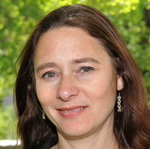
I worked as a sensory neuroscientist, studying hearing and hearing loss, before I founded Science Talk in 2015. I started out as a student by joining a Toastmasters public speaking club, so that I could improve my own communication skills. Later as a graduate student, I started teaching communication workshops for business professionals. From there, I began teaching science communication workshops to other scientists at conferences I would go to. Then, in 2014, I got an e-mail from someone here in the Pacific Northwest who works for a federal agency and who was also teaching communication workshops for their colleagues and other groups. We met for coffee and asked ourselves ‘why is it that there is no science communication community?’. That conversation was the genesis for Science Talk. We thought we should hold a regional meeting, to see how many science communicators there were in the Northwest; allow people to meet each other, share knowledge and stories, build collaborations and not feel isolated. That first conference was in January 2017; we had no idea what to expect, most of the organising committee had never even met face-to-face before that, but we sold out our 250 capacity a month early. We were blown away.
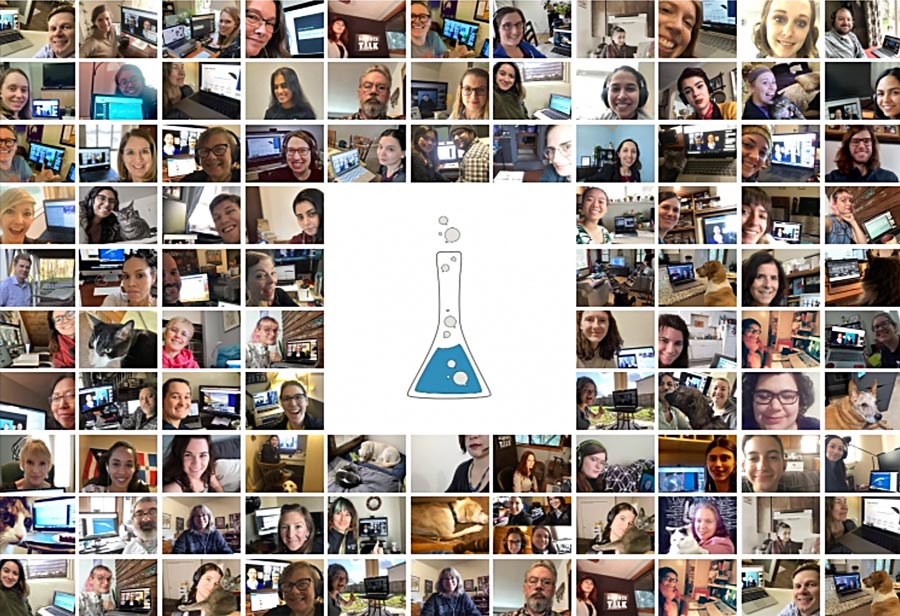
The theme of the Science Talk 2021 conference is ‘resilience’. Why did you choose this topic?
The theme is obvious in terms of resilience in the face of global crises. As individuals and an organisation we chose the theme during our annual retreat (with four of us sat at separate tables in a field and the other four on Zoom). We were thinking about ways to persevere during these uncertain times, but the biggest impetus was because we are facing so many major challenges on a global scale. Science doesn’t have all of the answers, but it has some, and it can inform decision-making. In many places we see pushback against that science. We believe science communicators can help people understand the science, build relationships to bring science to people in different ways, show how science makes sense for them and how it fits into their narratives and other stories.
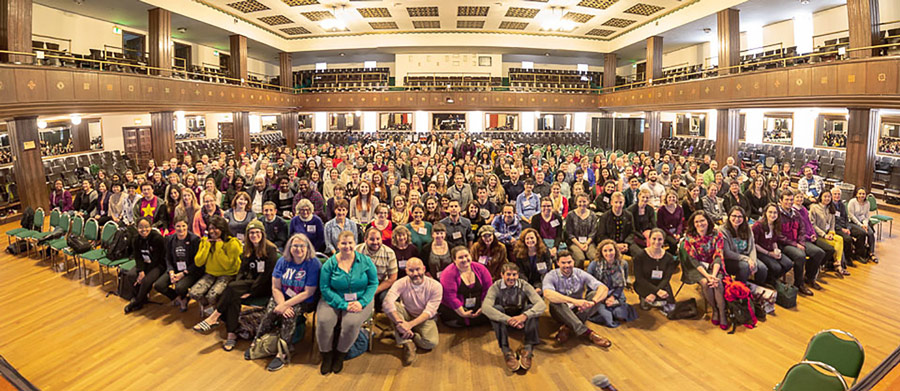
What services do you offer science communicators and researchers?
The conference is our primary offering. At the conference, we have keynote speakers, workshops, short talks and, my personal favourite, an elevator pitch session, where anybody at the conference can sign up to have one minute with the microphone to share something about themselves and their organisation. It’s a fantastic opportunity to network and reinvigorate careers. We see our conferences as not just for the community but by the community as well. We are currently voting on submitted proposals for workshops, panels, short talks and posters, and curate the programme based on this (https://www.sciencetalk.org/science-talk-21.html). Registration for our 2021 conference starts in mid-November!
We must stop using the phrase ‘dumbing down’; it’s insulting to non-scientists. We have to make research accessible.
Outside of the conference, this year we launched a series of online short courses on topics such as science writing, podcasts and search engine optimisation. We are going to be doing science improv sessions online, as well as other online opportunities in the future. We also have our blog, and we are always looking for blog writers (although we cannot pay for articles as we are an all-volunteer organisation). We recently started a blog series on influential black scientist communicators as part of the #BlackinSciComm week in October.
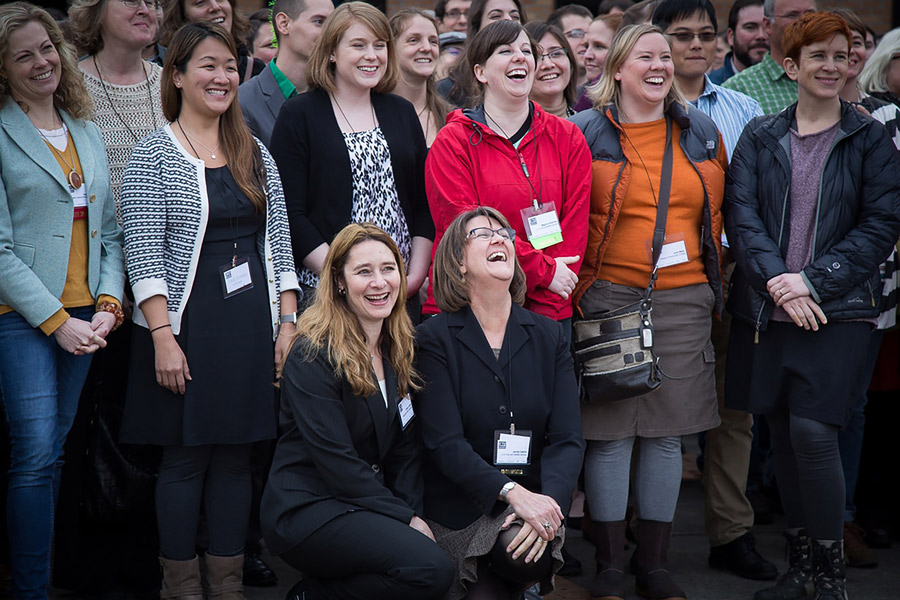
How can science communication help scientists as well as society?
Let’s take, for example, the discussions over vaccine safety in terms of a COVID-19 vaccine of which several are in development at the moment. There is a lot of hesitancy around a COVID vaccine, as well as things like mask-wearing; we’d like to help people understand why wearing a mask is important, how vaccines are developed and the processes that are involved. We are currently partnering with SIGMA XI on a project called #SciCommMake, a programme that pairs scientists and communicators with creators or artists in a ‘speed dating’ session on Zoom. We form teams of scientists and communicators to create a product or project based on the scientist’s knowledge and the creator’s skills. For example, we have child development scientists working with filmmakers to create videos explaining to kindergarten children how to stay safe and ‘spaced out’ like an eagle from their friends during the pandemic. This is science communication in action!
‘Science without communication is silent’: if we stay in our labs and don’t share our research, it doesn’t matter; it’s as if it was never done. In the most traditional sense, this means publishing in journals and giving talks at conferences. Without communicating more broadly though, people will never understand why what we do matters. Science communication also helps break down stereotypes; we don’t all look like Einstein. Science communication also matters if we want diversity in science, people of all ethnicities, backgrounds and thought. People who have different perspectives are critical to advance science. We have to get out there and show people who we are.
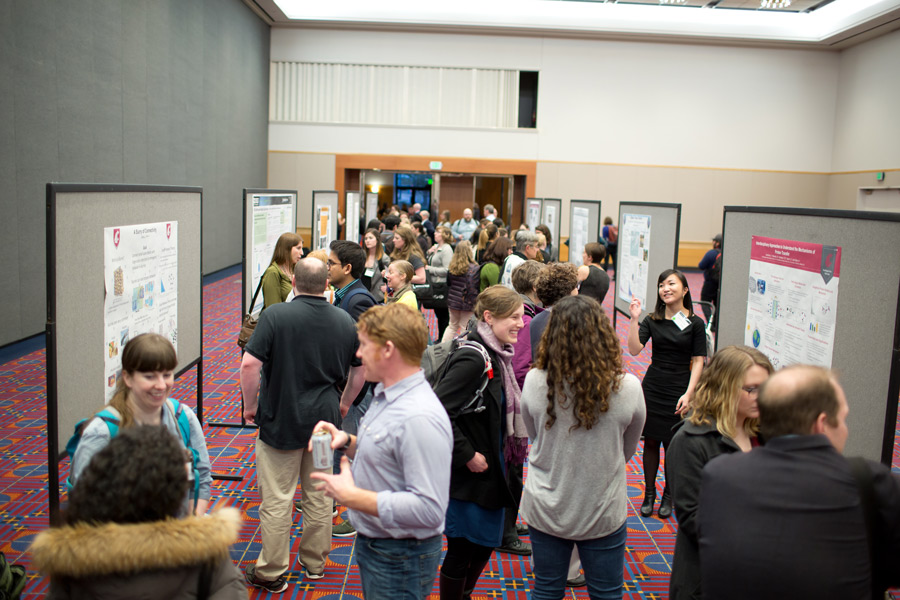
How can we bridge the language gap between researchers and the community?
The first thing I would say is that we must stop using the phrase ‘dumbing down’; it’s insulting to non-scientists. We need to make it accessible and have conversations instead of talking at people. I was once sitting in a bar next to a woman, we started to chat and she asked me what I do. When I said I was a scientist it became very clear that she was a science sceptic. My goal was not to translate science for her, or convince her science was real; I wanted to understand her perspective and ask her about her sources of evidence. By the end of the conversation, I hadn’t convinced her that her beliefs were not supported by evidence, but her language had shifted to ‘this is my opinion’ and ‘I read that on xyz’. I simply want to get people thinking; it is the conversation that matters most.
What do you plan for the future of Science Talk?
Short term, we would like to continue to add to our programme of short courses, as well as work on more informal networking opportunities, including virtual ones for people who are looking for connections at the moment when face-to-face meetings aren’t possible. There is also a lot of interest in regional chapters; people approach us asking if they can start their own Science Talk groups locally, and we are just working on making this happen. I am cautiously optimistic that we can start this in the spring of 2021.
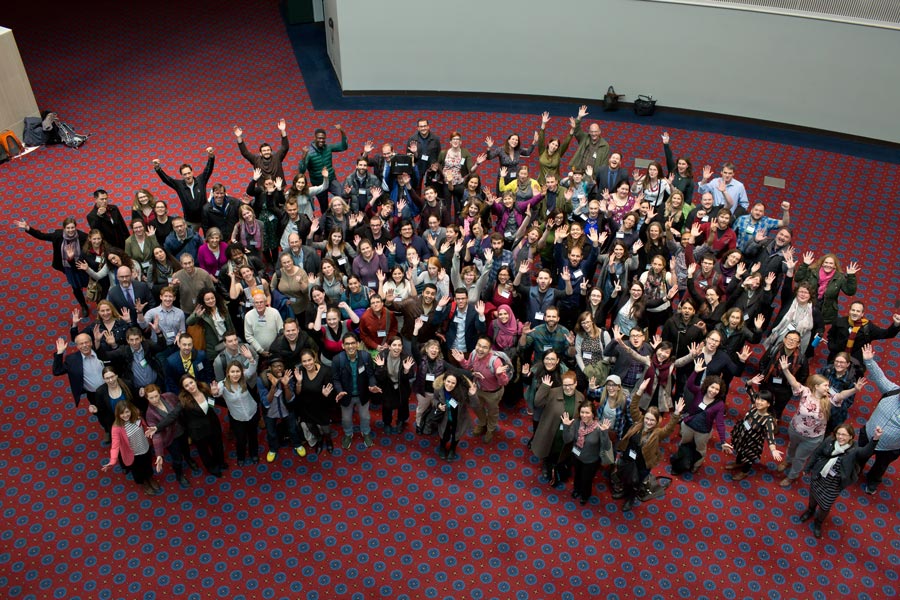
A bigger longer-term plan is the introduction of science communication certification; an additional credential that can be added to someone’s CV; and we already have a lot of interest in this in terms of continuing education credits. Another exciting line is developing the next generation of science communicators via a leadership programme. With some of our partners, we are well poised to develop this.
We are always looking for collaborators and partners; the goal is for science to have more of an impact on society, and I believe we can all work together on that.